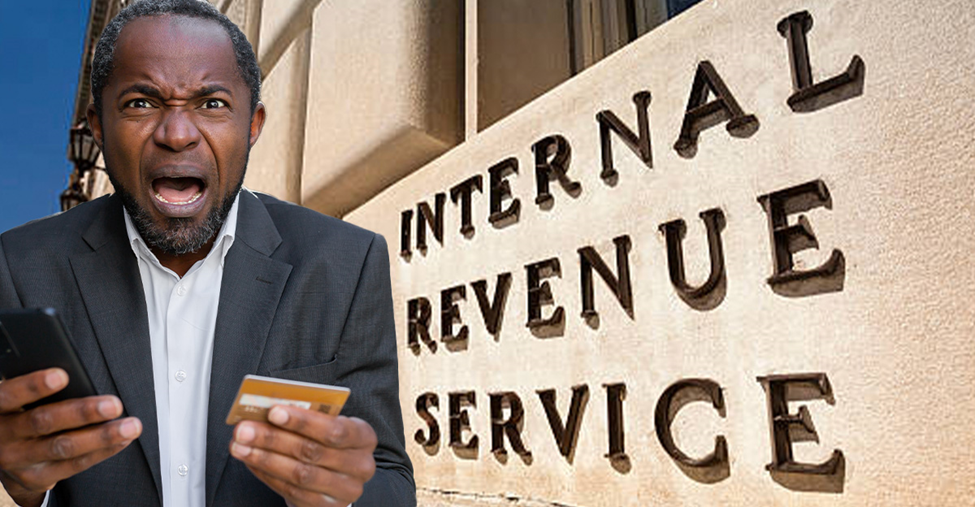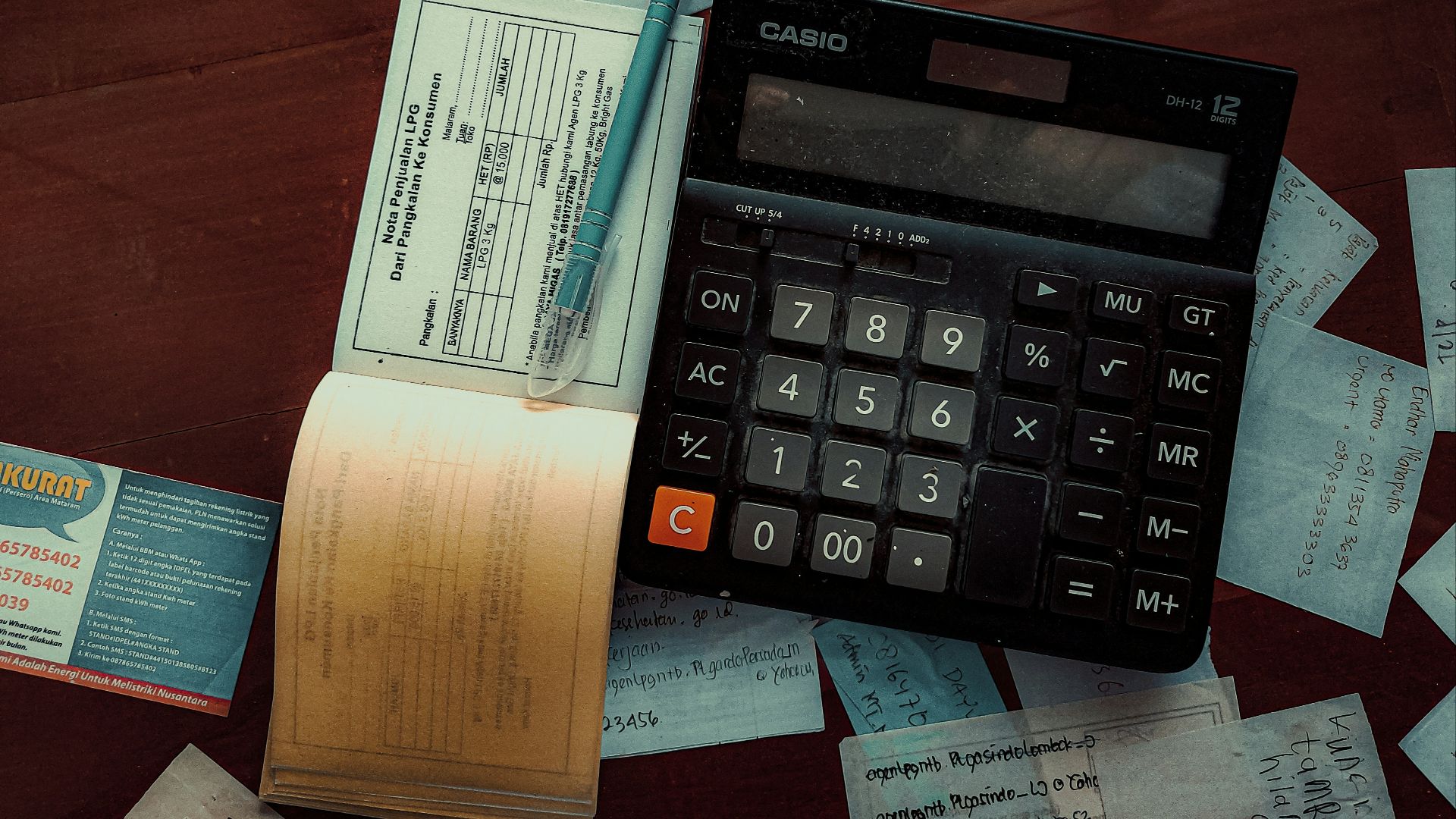You Paid Your Taxes With A Credit Card, Now You're In Hot Water With The Government & The Bank. What Do You Do Now?
You paid your taxes with a credit card, and now you owe both Uncle Sam and the bank that issued the card. You’re staring at two hungry creditors and wondering: “Who do I disappoint first?” The short answer is that you should never disappoint the IRS. But the long answer, which we’re about to unpack, is that while the IRS is scarier, the credit card companies can bleed you dry even faster.

Why This Situation Happens
Plenty of Americans end up in this exact bind because paying taxes with a credit card feels like an easy solution at the time. It delays the problem for a few weeks, buys breathing room, and avoids an awkward phone call to the IRS. But then the bill arrives from your card company, and suddenly you realize you’re juggling not one but two very different kinds of debt.
The IRS Is The Bigger Beast
If you’re wondering who can hurt you more, the answer is unquestionably the IRS. They have the legal authority to garnish your wages, freeze your bank account, or even place a lien on your house. Your credit card company, on the other hand, can call you endlessly, hit you with fees, and ding your credit score—but they don’t have the same nuclear options the IRS keeps in its back pocket.
Interest Rates Are The Real Killer
When you stack up the actual interest rates, the picture looks slightly different. The IRS charges a late payment penalty of about half a percent per month and tacks on interest that usually falls between four and eight percent annually. Meanwhile, your credit card is happily compounding interest at fifteen to thirty percent every single year. In other words, the IRS is scarier legally, but your bank is scarier financially.
But Here’s The Twist
Here’s the strange truth: even though the IRS has more powerful claws, credit card debt will sink you faster if you don’t keep it under control. The high interest makes balances snowball at a shocking speed, which is why you must focus on stopping the bleeding while still keeping the IRS satisfied enough not to escalate enforcement.
First Step—Don’t Ignore Either
The biggest mistake is pretending that one side doesn’t exist. If you ignore the IRS, they can show up at your paycheck. If you ignore your bank, your credit score gets destroyed and your balance spirals out of control. So the golden rule is to engage with both, but engage strategically so you’re not crushed in the process.
Call The IRS First
Start by calling or applying online with the IRS, because they actually want to work with taxpayers who show good faith. The IRS offers installment agreements, short-term extensions of up to four months, and even hardship status if you’re in a really tight spot. Setting up a plan buys you protection from the scariest consequences while giving you time to handle the bank.
How To Set Up An IRS Payment Plan
The process for setting up a payment plan is surprisingly straightforward. If you owe under $50,000, you can apply online at irs.gov in about 30 minutes, and the approval is usually automatic. There’s a small setup fee—around $31 if you do it electronically—but once the plan is in place, you can breathe easier knowing the IRS isn’t about to garnish your paycheck next week.
Next—Attack The Credit Cards
Once the IRS is satisfied with your minimum arrangement, you should direct as much firepower as possible toward your credit card debt. The compounding interest is relentless, and every month you wait makes the problem larger. By aggressively paying down your cards while maintaining your IRS plan, you protect yourself legally while killing the most expensive debt first.
What If You Can’t Afford Both?
If your budget feels impossibly tight, the order of operations is simple: always cover the IRS minimum first, because falling out of compliance will cause major headaches. After that, throw as much money as you can at your credit cards, because that is where the real financial bleeding happens. Think of it as keeping the IRS from breaking down the door while you drain the swamp created by your bank.
Consider A Balance Transfer
If your credit score is still strong, consider applying for a balance transfer card with a zero percent promotional APR. Many of these cards give you twelve to eighteen months without interest, which is essentially a free pass to get ahead of the game. But use caution here: you’re buying time, not a license to run up new charges, so treat it like a lifeline and nothing more.
You Could Try A Personal Loan
Another option is to roll your credit card balance into a personal loan with a lower, fixed interest rate. Personal loans often come with more predictable payments and a timeline for being debt-free, instead of the endless revolving nightmare of a credit card. If you can get a reasonable rate from your bank or credit union, this may save you thousands in interest over the life of your repayment.
Why Not Just Ignore the Bank?
Some people reason that since the IRS is scarier, they can afford to let the credit card company wait. That’s a bad idea, because ignoring your bank means late fees, penalty interest rates that jump as high as 29 percent, and a wrecked credit score that follows you for years. It’s not immediate jail time, but it’s still a financial disaster you’ll regret later.
A Word About Credit Scores
Here’s another wrinkle: missing an IRS payment doesn’t directly show up on your credit report. But missing credit card payments will land on your report within a month and can drop your score by dozens of points instantly. That means while the IRS is scarier in the long run, your credit card company punishes you in the short run where your creditworthiness is concerned.
Play Defense with Your Budget
To make progress, you need to free up as much cash as possible, and that means tightening the belt. Cancel duplicate streaming services, put off expensive purchases, cook at home instead of ordering out, and redirect every saved dollar toward your balances. The lifestyle adjustments may sting, but they’re temporary, and your future self will thank you for the sacrifice.
 Photo By: Kaboompics.com, Pexels
Photo By: Kaboompics.com, Pexels
Side Hustle Mode: Activated
If you’ve cut your budget to the bone and still can’t make a dent, your next step is to earn more income. Side hustles like rideshare driving, food delivery apps, freelance gigs, or even selling unused belongings can bring in extra cash. Every additional $100 you can direct toward your credit card balance moves your debt-free date closer and saves you money on interest.
Watch Out for “Tax Debt Relief” Scams
When you’re stressed about taxes, it’s easy to fall prey to ads promising to erase your debt for pennies on the dollar. Most of these “tax relief” companies are scams, charging huge upfront fees and delivering very little in return. If you truly need professional help, go to a licensed tax professional, not a late-night infomercial that sounds too good to be true.
Mental Health Check
Debt anxiety is not just a financial problem—it’s an emotional one. Millions of Americans feel the same crushing stress every year, so you’re far from alone in this battle. Talk to a trusted friend, lean on financial counseling resources, and remember that you are actively working toward freedom instead of sinking deeper. Perspective matters as much as the numbers.
The Survival Formula
The winning strategy boils down to four steps: talk to the IRS and secure a plan, pay down your credit cards as aggressively as possible, restructure the debt through transfers or loans if you can, and keep your lifestyle lean while boosting income. None of these steps is glamorous, but together they build a ladder out of the hole.
Final Answer—Who to Disappoint First?
So, who do you disappoint first—the IRS or your bank? The truth is that you shouldn’t disappoint either if you can help it. Keep the IRS satisfied with a payment plan so their claws stay sheathed, then funnel your extra energy toward crushing your credit card debt, because interest is the true monster. Balance both carefully, and you’ll find yourself debt-free sooner than you think.
You May Also Like:
Real Estate Investments That Actually Make Sense
Vintage Pyrex Patterns That Are Worth Big Money
























